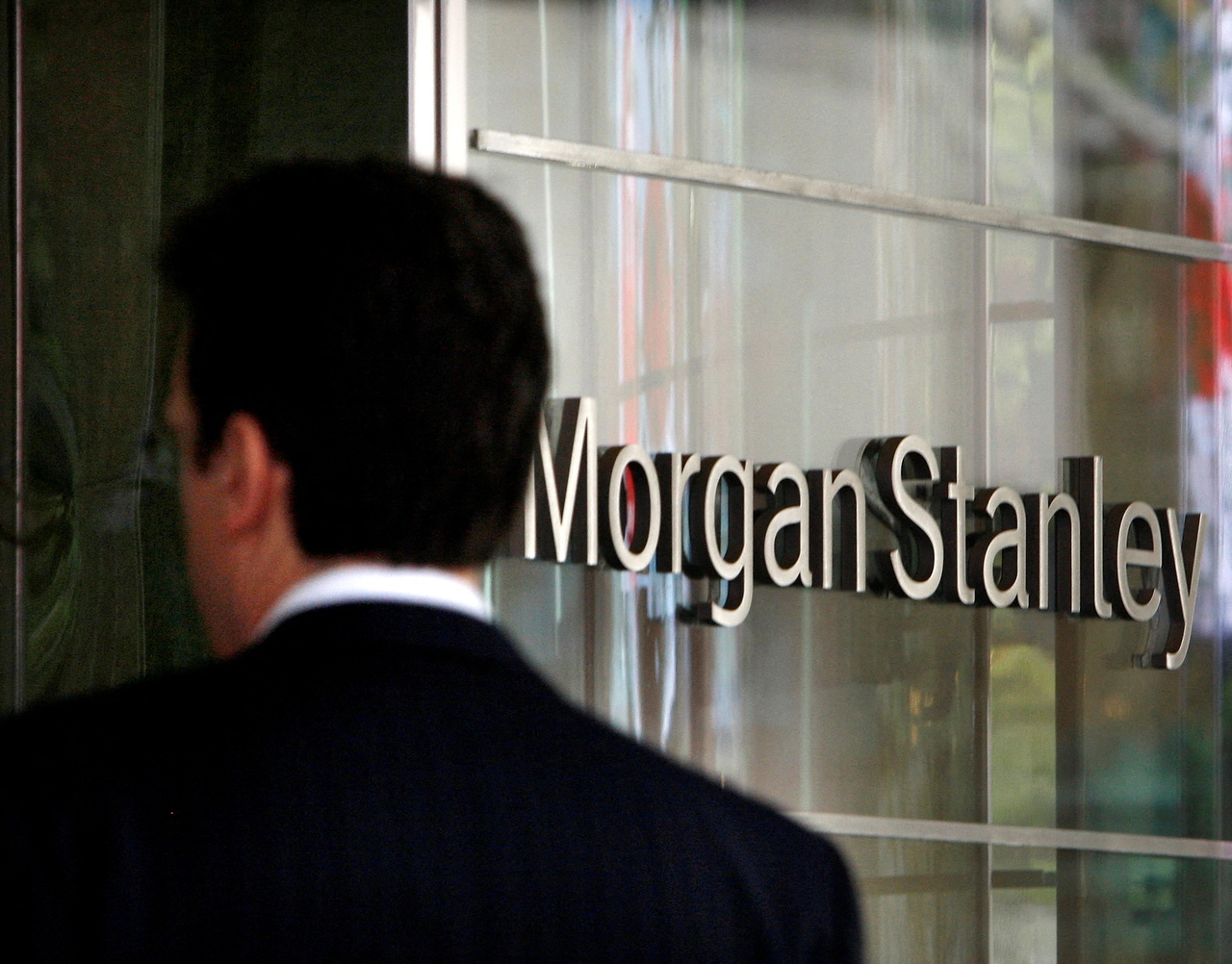Morgan Stanley lawyer doubles down on Wall Street office return
Sign up now: Get ST's newsletters delivered to your inbox

For financial services firms, remote work has made it difficult to foster a common culture, the lawyer said.
PHOTO: REUTERS
NEW YORK (BLOOMBERG) - Morgan Stanley's top lawyer said on Friday (Jan 28) that veteran outsiders who criticised his push to end remote work are missing an opportunity to connect with the next generation of leaders.
"Two years of not being together is fraying those bonds," Mr Eric Grossman said in a Fordham Law School talk.
Almost a fourth of Morgan Stanley's workers started during the coronavirus pandemic, and "a bunch of them have never spent time in the office - they don't know what we're like," he said.
Much of the negative reaction to his call to return to the office came from "fully formed lawyers", Mr Grossman said.
"'I don't need to be in the office, I'm super-efficient at home, I'm serving my clients, I'm getting everything done,'" he said, paraphrasing the criticisms. "But we are stewards for the next generation."
Mr Grossman, Morgan Stanley's long-time chief legal officer and one of the top paid lawyers on Wall Street, in a July memo to outside law firms and legal service providers, said they should end remote work and bring lawyers back to the office. The memo suggested that those continuing to operate remotely risked their relationship with the financial services company.
Being a lawyer is not a job, but a career and a profession that requires in-person training and mentoring, Mr Grossman said in the Friday discussion held over Zoom as part of Fordham's law firm management programme.
As Mr Grossman said he sees it, the lunches, dinners, meetings, and post-conference call debriefings he benefited from as a young lawyer at Davis Polk & Wardwell need to be "paid back" by senior lawyers to those just starting their careers.
Mr Grossman jokingly noted that he might be the only Morgan Stanley employee on the floor of his office on a snowy Friday in New York.
For financial services firms, remote work has made it difficult to foster a common culture, Mr Grossman said. While the Covid-19 Omicron variant has delayed the plans of Morgan Stanley and other big banks to bring employees back to the office, Mr Grossman said he is optimistic that many workers - lawyers or otherwise - are looking forward to being together again, some for mental health reasons.
Mr Grossman, who once served as Davis Polk's global head of litigation, added that "50 per cent of my professional development was sitting in some partner's office when the client called up unhappy and watching him or her deal with an unhappy client".
He said it is nearly impossible to have that same experience working remotely and that today's Big Law associates are missing out on learning how to manage many issues.
"Brainstorming does not happen," Mr Grossman said.
Friday's Fordham Law discussion also touched on other structural issues in Big Law, such as diversity and inclusion, recruiting, holding on to young lawyers in a tight market for talent, and how firms can differentiate themselves and attract clients in a hyper-competitive legal services industry.
Mr Grossman, who noted his overarching view is that there are too many United States law firms doing the same work, recounted a recent dinner he had with a friend, a New York litigator in private practice. The lawyer, who Grossman did not name, insisted the services his firm could provide are different than others.
The practice of law at its highest reform requires a creative element that allows the best to rise to the top, Mr Grossman said. It is easy in an age when lawyers are not in the same place exchanging ideas to do things simply because that is the way they have always been done, Mr Grossman said.
"What really stands out over time are the lawyers who know how to follow the path that's already been travelled - even if it's been followed for decades and it's consistent-but who nonetheless stop, reflect, put the phone down, turn the TV off, and stop the Facebook and the Instagram and think about whether there might be another way," he said.
Such entrepreneurial and out-of-the-box thinking, even if a client resists or turns down such counsel, is what a law department leader like Mr Grossman said he remembers when he is selecting which firm to hire.
That includes a willingness of lawyers to get outside their comfort zones and deliver creative solutions even when they are not explicitly requested, he said.
"That cuts across the delivery of every kind of legal service: dispute resolution, transactional, regulatory, tax, employment, matrimonial, I don't care what it is," said Mr Grossman, who when not opining about legal affairs has also spoken about trying the mend the fractured US political landscape.


